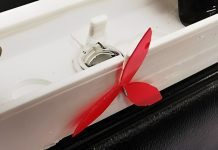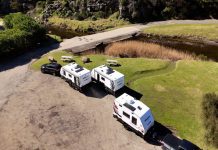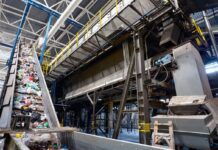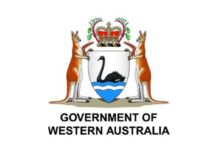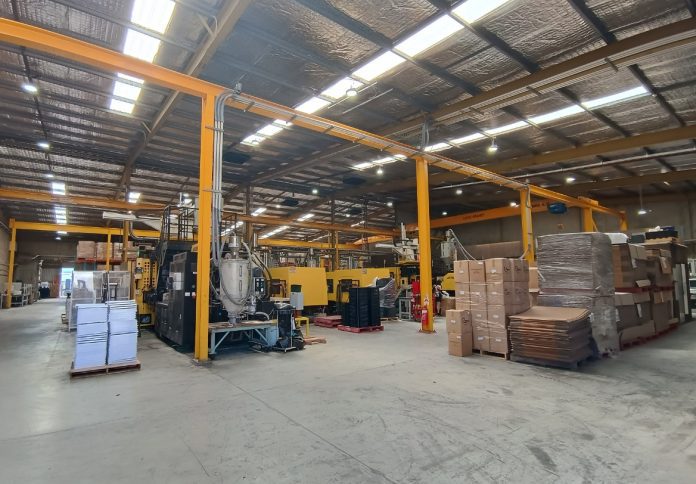
As Australian households face rising energy costs and growing pressure to reduce their carbon footprint, smart home climate technologies are gaining traction as a practical solution.
At the heart of this shift is a demand for systems that not only keep homes comfortable but also operate efficiently and sustainably.
One local company making waves in the smart home sector is The MyPlace Group, a Perth-based innovator behind advanced multi-zone air conditioning systems tailored for energy-conscious households. What began as a small-scale operation in a suburban garage has grown into a leading force in Australian-made climate technology.
In this exclusive interview with Australian Manufacturing, General Manager Darren Bee shares how MyPlace, formerly Advantage Air, has scaled up to meet growing demand – earning global interest while remaining firmly committed to local design and manufacturing.
Bee credits MyPlace’s success to a conscious decision to retain all product design and manufacturing operations in Australia. “We made a deliberate decision to design and manufacture our products here in Australia because we got a better end product,” Bee explained.
“Putting in place good internal systems and process ensured oversite of quality control meaning our output was better than what we felt we could have received from overseas,” he noted.
Smarter air, lower costs
The company’s smart air conditioning systems are built with energy efficiency in mind – something increasingly important to Australian households as energy prices rise and the climate grows more unpredictable. “Our systems get air into the rooms you need it and importantly there isn’t air going into the rooms you don’t need it,” Bee said.
Highlighting the impact, Bee noted that air conditioning accounts for 40 per cent of the nation’s electricity usage, with ducted systems responsible for more than a third of that consumption.
“Our 10 zone system can be tailored to each household, ensuring each zone or room has its own temperature sensor so the occupant can set their room to their desired temperature…This is where your savings in terms of dollars and energy efficiency comes in.”
Unlike the standard two-zone systems mandated by the National Construction Code, MyPlace’s multi-zone systems offer a more granular and responsive alternative that Bee believes should be embedded in future building standards.
“If we saw a change in the number of mandated zones in new builds, you would see smaller systems, pulling less energy from the grid while households can remain safe and comfortable.”
Rooted in Perth, the company has remained committed to local manufacturing even as offshore options became the norm. “We are passionate about offering jobs, training and education opportunities for Australians,” Bee said, adding that a team of local designers and technicians ensures products are tailored to the everyday needs of Australian households.
This local-first ethos hasn’t gone unnoticed. While global tech giants have begun paying attention, Bee said MyPlace maintains its edge by staying connected to its customers.
“We are big enough to be the largest business in our sector in Australia but still small enough to really understand the needs of our consumers here,” Bee stated.
The role of advanced manufacturing
Advanced manufacturing also plays a central role in the company’s innovation. “We use the best of the best when it comes to equipment. We have the best machines and we have them in-house. This is to ensure we are producing high quality products and to ensure we can respond to supply demand quickly,” Bee said, pointing to policy challenges around skilled migration as one barrier to expansion.
Through its partnership with the Australian Tech Council, MyPlace is advocating for reforms to support greater adoption of energy-efficient systems. “We joined the Tech Council to have a voice at the table during conversations that affect everyday Australians. We are very passionate about Australia and Australian people and we believe our systems can make a positive difference in the their lives.”
Despite challenges in the local smart tech space – particularly around skills shortages – MyPlace continues to train and invest in emerging talent. “What has worked for us is hiring based on the person and whether they share the same values as the company,” Bee said, noting that apprenticeships and on-the-job upskilling have underpinned their three-decade legacy.
Looking ahead, Bee sees smart home climate technology becoming even more mainstream. “People want systems that help them with their bills but keep them comfortable. Smart systems like ours mean people can feel good about having the air conditioner on during the summer because they know they are conserving energy and saving money.”



